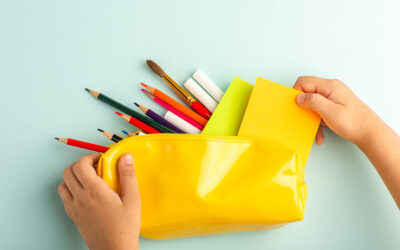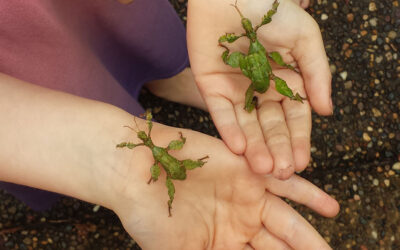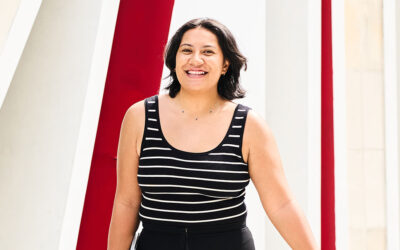Until the age of five, your little one forms approximately 700 new neural connections every second! Ninety per cent of a child’s brain development happens in these precious first five years.
Babies learn best from their primary caregivers — from watching and interacting with you. That doesn’t mean you need to have structured learning plans or start tutoring your toddler! Simply by playing, reading, singing and chatting with them you are helping them to learn.
“It’s really easy to add things into everyday situations and most parents don’t even realise the impact all these little things are having on their child,” Karen Gawen, Sunshine Coast Council’s supervisor for young people’s services, says.
“The more words your baby hears, the easier it is for them to build their vocabulary, understand what’s happening around them, put the words into context and communicate back.”
According to Gawen, there are four things you can do to nourish your child’s developing brain and improve their early literacy.
Talk
There’s no better way to spark those new neural pathways than chatting with your baby. Turn off the TV or other devices so your child can really hear you. Get down to their level so they can see how you form words and see your range of expressions.
- Play rhyming word games and add in silly made-up words.
- Ask open-ended questions that need more than ‘yes’ or ‘no’ answers.
- Don’t avoid big words for fear they won’t understand. Instead try to introduce them as soon as there is opportunity.
- Use different adjectives every time you describe something. Something great can also be magnificent, splendiferous, tremendous, incredible; something large can be ginormous, giant, colossal … you get the idea!
- Go for the biggest words you can think of to expose your child to the sounds and structure of language. Supercalifragilisticexpialidocious is always a favourite!
Narrate your day
Children learn words by hearing them and copying them. Simply narrating your day together can make a big difference to the vocabulary your child has by the time they start school.
- Talk about what you see as you walk along the street.
- Describe what you are buying at the supermarket.
- Talk about what you are having for breakfast, whether it’s crunchy, soggy, yummy or sticky.
- Add to what your little one says, or respond to it with a question. Even if your child isn’t talking with legible words yet, still pause to allow them time to answer, so they get to experience the back-and-forth of conversation.
Read
Even if it is only 10 minutes, find time every day to snuggle up and read to your child. Reading is a magical window to the world for children and it’s where they learn about things.
- Your child also learns habits from you, so model a love for reading yourself and let your child see other family members reading.
- Chat about the story and ask your child questions about what happened.
- Let them tell the story by looking at the pictures.
- Explain words that are unknown.
- From the time they are born, surround your child with books, magazines and pictures.
- Use your local library — you can borrow a huge range of books on all sorts of topics.
Sing
Songs are a treasure trove of new words and a fabulous way to develop early literacy skills. Keep it fun and silly, and sing slowly so your child can hear the words. If you need a little inspiration, head to a free Rhyme Time session at your local library.
- Play music during car trips and sing along with your child.
- Surround your child with musical instruments.
- Sing lullabies and quieter songs to help calm your child.
- Have family karaoke nights and sing your favourite Disney songs.
Play
Play is how children learn and begin to understand the world around them. You don’t need expensive toys or complicated activities to support this.
- Scribble and write with chalk or water and a paintbrush on the driveway or a fence.
- Play their favourite games frequently, whatever they are.
- Introduce them to games you used to play like jacks, hopscotch and elastics.
- Borrow toys from your local library.
- Play with puppets and dress ups.
- Play sorting games at home with pegs, matchbox cars or other things around the house.
- Make cubbies and forts out of couch cushions and large bedsheets.
You may also like…
Early literacy games – anytime and anywhere
Sparking early literacy with creative play
Dads matter! Early literacy tips for dads


